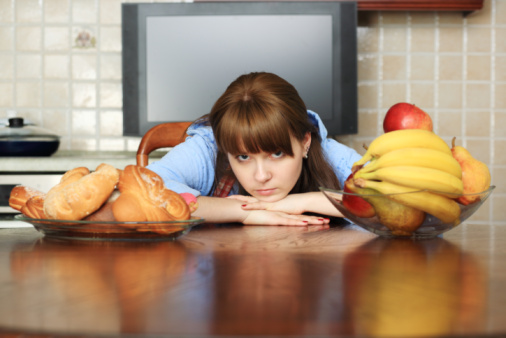

What This Means for Your Weight Gain
In 2011 registered dietitian Marissa Lippert wrote a book called “The Cheaters Diet.” According to Lippert allowing yourself to cheat on your diet helps to alleviate feelings of deprivation and prevents out of control binges. In fact, she recommends that you throw out the notion of ‘good’ and ‘bad’ foods and allow yourself to consume two cheat meals and two cheat snacks every week. When you consume these non-diet foods, you should relish in them and not allow yourself to feel bad or guilty about them. By actually planning out your cheat meals, and knowing that you will have more opportunities to indulge in your favourite foods ‘guilt-free’ you will be more likely to consume the foods in smaller portions and in a controlled manner. This type of eating will also increase your chances of sticking to your diet because you will not feel deprived or discouraged from an occasional diet faux paus. This is all important because it is bingeing that causes rapid weight gain and not the occasional high fat, high calorie or even junk-food laden meal.
RELATED READING: Avoid the 7 Danger Signs of a Toxic Liver
If you take an all or nothing approach to your diet, a diet killing meal is much more likely to cause weight gain and lead to obesity. If your try to avoid all foods that you have pegged as bad for weight loss, all of the time, you are unlikely to be successful. A bad day, exhaustion, stress, boredom or any negative emotion can cause your will power to break down. Before you know it, you may find yourself standing over your kitchen table shoveling in cookies and ice cream and chips and all of the other ‘forbidden’ foods and the guilt of doing so may lead to a full-fledged binge. The average amount of calories consumed in one single binge can range from 2,000 to 10,000 calories. It takes just 3,500 excess calories to gain one pound, which means that you can gain almost 3 pounds in one single diet killing meal! Unfortunately, after the binge is done, you will likely feel bloated and guilty, and those feelings of guilt can stick with you, increasing your likelihood of binging all over again. Frequent binging will not only lead to weight gain but also vastly increase your chances of developing obesity.
So that one diet killing meal doesn’t have to be bad, so long as it is consumed in a conscious and controlled manner. And if you are going to indulge you might as well enjoy it, and return to your diet promptly without guilt or self-loathing. An easy going attitude with regards to the occasional dietary blooper will help to make your diet more tolerable and likely even enhance your weight loss efforts.